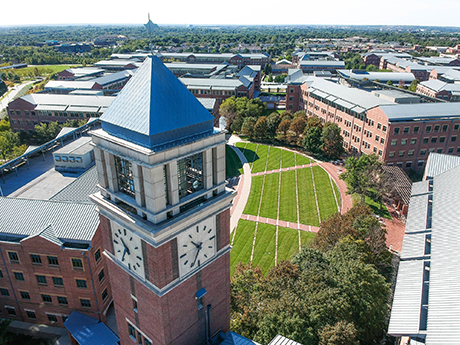By Anné Erickson, JLL
Kansas City’s appeal is catching the attention of companies looking for more than just square footage. From corporate relocations like Fiserv and expansions by Propio Language Services, to a deep talent pool, business-friendly environment and central location, the metro is emerging as a strategic choice for growth. These factors are fueling activity in a market already defined by stable fundamentals, headline lease transactions and a strong flight-to-quality trend.
While the overall vacancy rate remained at 20.2 percent according to JLL’s Q2 2025 Kansas City Office Market Dynamics report, the quarter delivered 192,000 square feet of positive net absorption, reversing early-year declines. Average asking rents held steady at $22.98 per square foot, signaling stability despite the competitive environment. For tenants seeking to secure best-in-class space, and investors targeting properties with long-term upside, Kansas City is increasingly worth a closer look.

Flight to quality
One of the clearest shifts in recent quarters has been the move toward high-quality, well-located buildings that can support hybrid work, collaboration and tenant amenities. After several years of shorter lease terms and cautious decision-making, companies are now committing to space that reflects their long-term workplace strategies.
This was evident in several major second-quarter deals. Blue Cross Blue Shield’s recent relocation to 260,000 square feet at the 1400KC building is among the largest downtown leases in recent memory. Farmers Insurance committed to 132,188 square feet in the North Building in Wyandotte County, and Fiserv Solutions Inc. signed a lease for two buildings in South Johnson County totaling more than 427,000 square feet. These transactions underscore the strong pull of Class A product in prime locations and the willingness of tenants to secure it when available.
Fiserv’s move, in particular, stands out — not just in size, but in its strategic and economic significance. The global fintech leader committed to approximately 427,000 square feet across two buildings at the Aspiria campus in Overland Park, making it the largest office recruitment in Kansas (and Kansas City region) history.
Many of these large lease decisions highlight several compelling advantages of the Kansas City metro:
• Strategic central U.S. location with strong access to Midwest clients, bolstering both efficiency and collaboration;
• A deep and growing talent pool, vital for powering future innovation;
• A pro-business climate supported by competitive incentive programs that reward investment, job creation and community engagement.
Meanwhile, Fiserv is investing $175 million to renovate the specified space, creating around 2,000 high-paying jobs with average salaries around $102,000, and contributing an estimated $6.5 billion in economic impact over 10 years.
Together, these major leases do more than drive recent absorption figures. They signal a broader shift: Kansas City is increasingly viewed not just as viable, but as desirable — a place where firms can build long-term, innovation-focused operations with confidence in both market fundamentals and future upside.
Market fundamentals
The oversupply of sublease space that built up in recent years is beginning to recede, reflecting stronger tenant commitments and a shift toward rightsized, purpose-built environments. This trend is attracting new investor attention. Although capital remains selective and transactions are taking longer to close, high-quality assets in top submarkets still draw strong investor interest.
Kansas City’s construction pipeline is currently modest, with 337,000 square feet under construction in the second quarter — and nearly 88 percent of it preleased. Still, several transformative projects are poised to influence the market’s trajectory. The $200 million Berkley Riverfront mixed-use development and the South Loop Project are set to reshape downtown connectivity, boost livability and enhance the appeal for employers and residents alike.
In the suburbs, well-positioned Class A projects are performing strongly, supported by steady corporate migration from other metro areas and a focus on talent access, transportation and amenities. The shift toward longer-term leasing strategies reflects companies settling into their “new normal” and aligning real estate decisions with broader business and workforce objectives.
What’s next
Looking ahead, vacancy may see some near-term fluctuation as the market absorbs recent space adjustments, but conditions appear to be stabilizing and are expected to give way to steadier performance. Concentrated demand for premium space, combined with targeted investment downtown and in select suburban nodes, positions Kansas City for sustainable, if selective, growth.
For tenants, today’s conditions present an opportunity to secure high-quality space under favorable terms. For investors and developers, the path forward will hinge on differentiation — delivering the amenities, locations and experiences that the next wave of tenants demand.
With its central location, market stability and a growing track record of attracting top employers and transformative projects, Kansas City is solidifying its role as a premier business hub in the Heartland and a market to watch for years to come.
Anné Erickson is a vice president with JLL. This article originally appeared in the September 2025 issue of Heartland Real Estate Business magazine.


